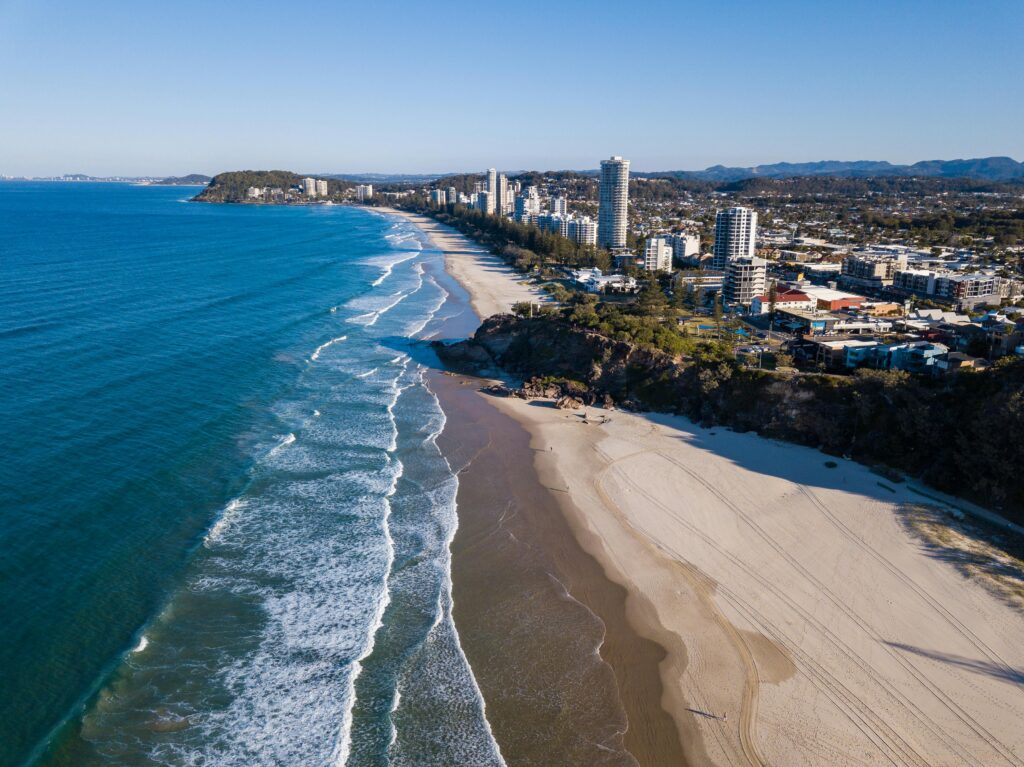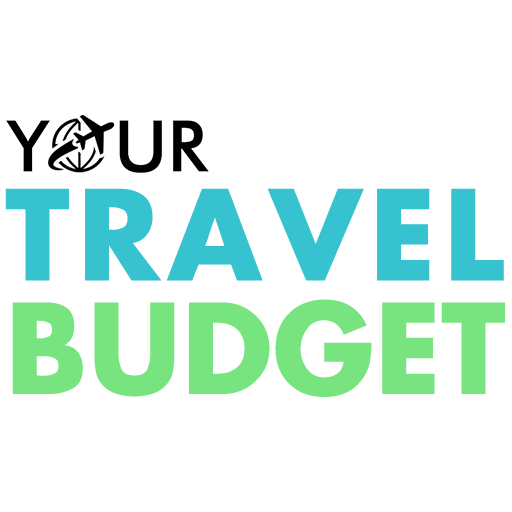Table of Contents
Budget Travel in Australia
Australia has a great diversification of climate, incredible cities, and extraordinary animals. From the beautiful coast of Gold Coasting to the tropical and colorful outback and Sydney and Melbourne, the opportunities are endless for new adventures. But it is also important to know that Australia is relatively costly, and most travelers will have a hard time budgeting while traveling around the country, which is huge. I am pleased to reach that point. With careful planning and an appropriate approach, one can attend to what is offered in Australia and go through it in detail without spending too much. Today, in this article, you will learn eight intelligent strategies for saving money while traveling down under.

Embrace Public Transportation
Australia’s principal cities have fairly well-developed means of public transport that are relatively inexpensive means of commuting. Buses, trams, and trains mean you can get to all the major attractions without hiring a car or taking a cab. For instance, one can buy daily or even weekly tickets for Melbourne or Sydney, where tourists can enjoy passenger transport cheaper than other major cities in the developed world.
Furthermore, public transport is still more natural and closer to actual life circumstances than using our car. You can get a glimpse of some areas that you would not notice when driving and speak to people along the way. It will also have a positive impact on designing the routes in advance so as to reduce time wastage while exploring the system maximally.
Choose Economy Class Hotels
However, affordable accommodation in Australia can be attained if one is willing to look for it in areas that are not usually frequented. A hotel is a bit more expensive, but a hostel, guesthouse, or camp with comfortable beds for the night will cost considerably less. Hostels, especially for independent traveling on budget, are communal and always provide a great opportunity to meet other people; many of them have a kitchen and thus have an option to save money on eating out.
The other method is to search for accommodations in vacation rentals on Airbnb. Hosts offer reasonable charges, and one stands to gain big when he or she books in advance or during the low-demand season. Also, it is useful to rent your place outside tourist zones because it is cheaper and there is less of that touristy feeling.
Take Advantage of Free Attractions
Australia is blessed with many marvelous sights that are free for visitors. There are many great sights to gaze at without having to factor in entry costs, whether it’s nature, such as the unique beaches and national parks, or architecture, like the Opera House in Sydney and murals and graffiti art in Melbourne. Hiking, wildlife viewing, and outstanding scenery are national park attractions, mostly free.
Also, look into festivals and other local events because many cities offer free events during the year. These are occasions such as art fairs, concerts and carnivals, street performances, and sales, among others, that offer an opportunistic encounter with culture at minimal costs. Therefore, it is advisable to check the community’s calendar to know which attractions are free to visit.
Dine Smart
Meals bought from restaurants in Australia may prove expensive. However, there are various tricks for eating well while still being lean. One of the best solutions is to visit local stores and food kiosks because they are believed to sell fresh and cheap food. Meals can also be bought in cheap and attractive markets such as the Queen Victoria Market in Melbourne or the fish market in Sydney.
Also, one should take lunch and dinner during happy hours or look for restaurants that serve lunch specials. Most places can offer several promotions, allowing people to eat many products at a considerably lower price, especially when restaurants, cafes, or other spots are unpopular. Do not neglect using the cafes, as in Australia they are very developed, and they offer coffee with pastries for a moderate price, so such a breakfast or snack will not be expensive.
Plan Day Trips Instead of Overnight Stays
Because Australia is an enormous country, traveling between two locations may seem like a big feat, so planning to go on day trips instead of spending the night at the destinations can help one save money. Forget about spending lots of money on distinct places to stay in different cities; turn to day tours as soon as possible. For example, guests arriving in Sydney can visit the historical Blue Mountains or charming Hunter Valley wine region and return to the hotel the same day without spending the night at one of the hotels in the districts.
Many companies offer reasonable prices for their day tours, which include transfers and guides. This approach also saves an individual much money compared to checking into hotels while sightseeing. Also, you’ll be returning to your home every day, which makes a journey rather comforting if budget trimming is the main consideration.
Use Travel Passes and Discounts
While planning your travel program, look for travel vouchers that give a traveler a cheaper fare to the areas of interest and cut the price on some of the leading attractions. Almost every city has combined sights and attractions into individual tickets at a lower price than exploring on your own. For instance, Sydney Pass is accepted in several of the best tourist attractions and allows using the public transportation system; therefore, it is rather cheap.
Also, it is always helpful to ask for reduced-price ticket options, such as students, seniors, or group rates, for tourist attractions. Numerous destinations offer lower prices for certain categories of people, and using them can save real money during the entire vacation. Another way to positively influence your travel without having to deal with a tight budget is to prepare to wait for special promotions or bundle offers.
Shop Smart for Souvenirs
If not, keep an eye on it; souvenirs alone can potentially drain your pockets dry. Known for revamping their prices, touristic shops may charge almost three times as much for their product, so finding local farmer’s markets or craft stores will prove much more rewarding. Shopping for souvenirs, buying handmade products, works of art, or some tasty local specialties with less of the tourist price tag.
One might need to put some constraints on the amount of money you are willing to spend or, better, set a limit on the amount to be spent on souvenirs. This may assist you in determining what you truly desire to purchase for your home to avoid making foolish decisions as you consider some excellent items that may disrupt your general budget. Of course, experiences as a form of expenditure are still useful. Tourists can take videos and write commentaries about events that have occurred to them as valuable souvenirs that cost nothing.
Travel During Off-Peak Seasons
Sidetracking to other places during low seasons or months means you can save a lot of money on airline tickets, hotels and meals, and various tourist attractions. Australia’s high tourist seasons are December and February, combined with summer holidays and school vacations. If your schedule allows it, choose an off-peak season, better known as shoulder seasons: September to November and March to May, respectively; there are fewer tourists and cheaper rates.
Besides the monetary advantage, touring and pacing your trip during low seasons makes it less hectic. You can also visit popular excursions without standing in queues and often spend more time with people and receive additional insights into their traditions. Furthermore, many areas have other fascinating events and celebrations during the low season, and such experiences cannot be had during the peak season.

Conclusion
It also revealed that planning a trip to Australia on the cheap is not only possible but may be the better way to travel. So, using public transport, choosing economical places to stay, and visiting free sights will let you walk through different faces of Australia’s beauty without overvoting on it. Other ways to save money include smart dining, day excursions, and the locals offering other discounts. It is possible to maintain a budget and/or get the most out of a trip to this part of the world if you are willing to look for one that is available at an affordable price.
FAQs
What is the best time for budget travelers to visit Australia?
The ideal seasons for those on a low budget to explore Australia are during the off-season, from September to November, and March to May.
Are there affordable food options in Australia?
Yes, cheaper food is obtainable at the local market and food-selling joints, excluding the periods during which happy hour discounts are offered on most food joints. Some of the cafes also supply breakfast and lunch deals at very cheap prices.
How can I find free attractions in Australia?
You can freely enter many national parks, beaches, and city landmarks. Moreover, remember that open-air events and festivals are often free and take place in communities.
Is public transportation reliable in Australia?
Indeed, Australia has efficient public transport within cities through buses, trains, and trams, though car use is not compulsory since the cities have efficient road networks.

